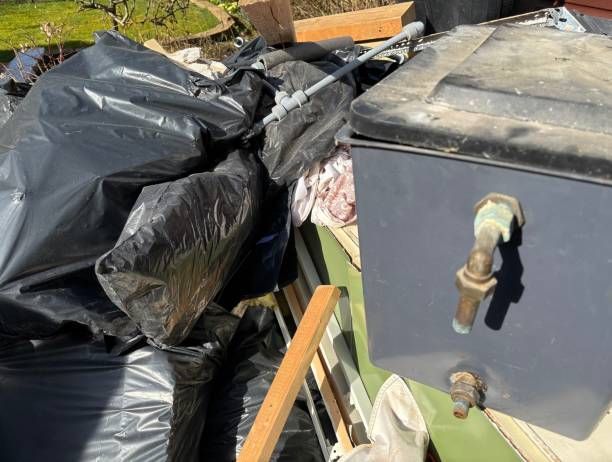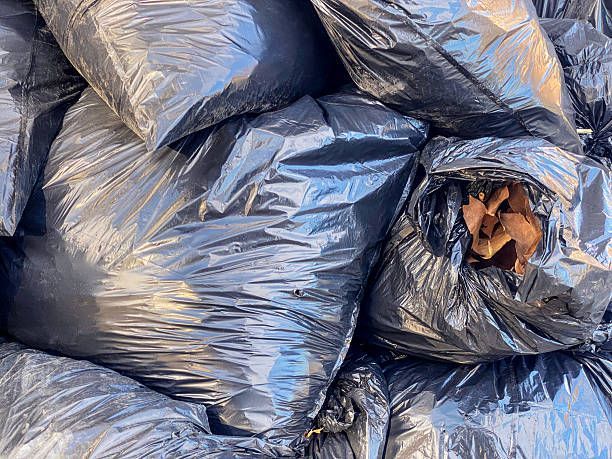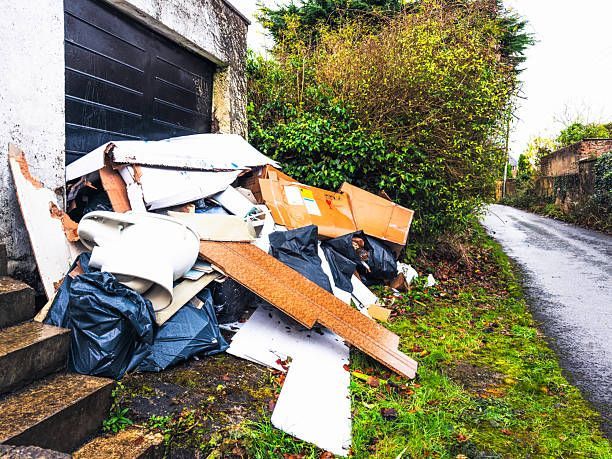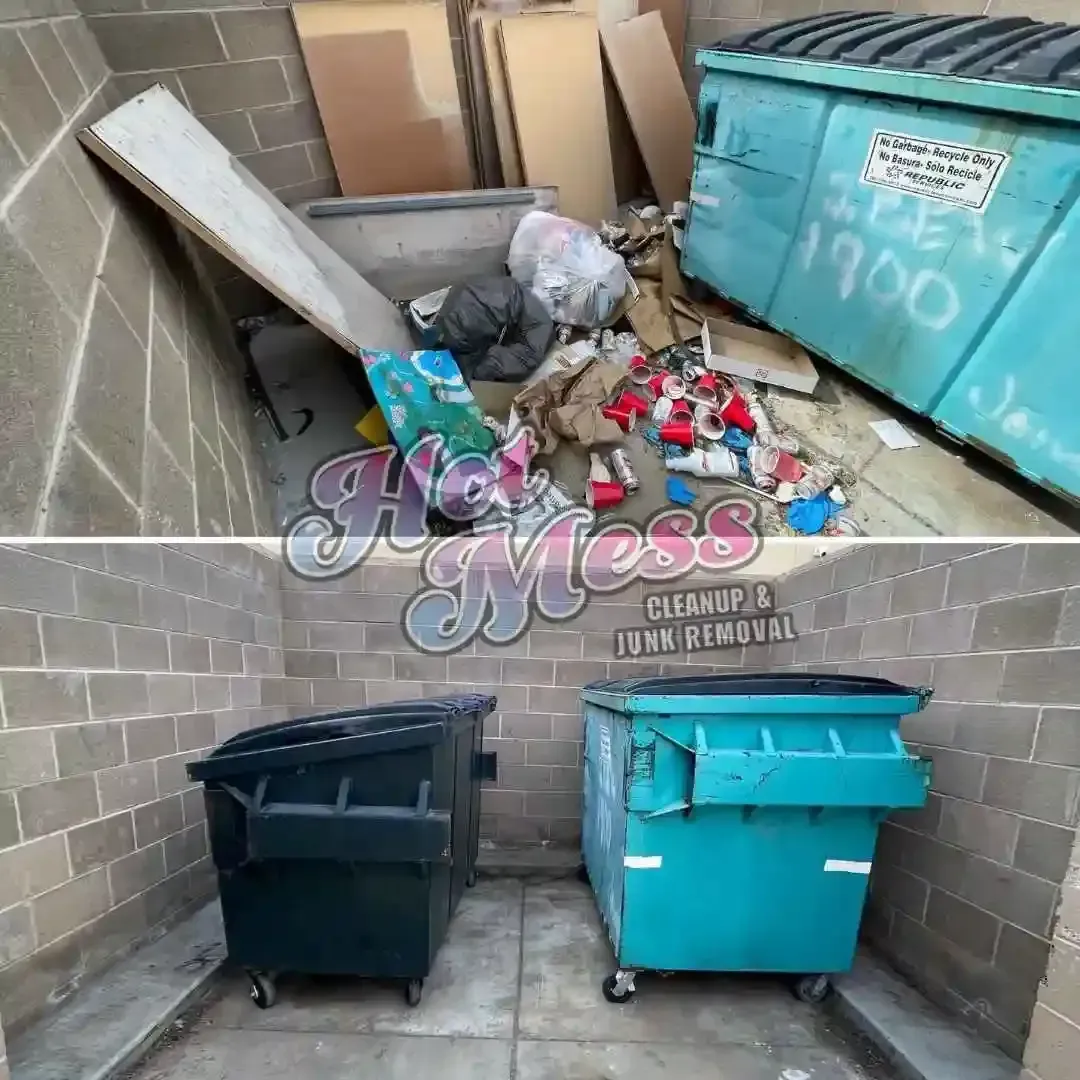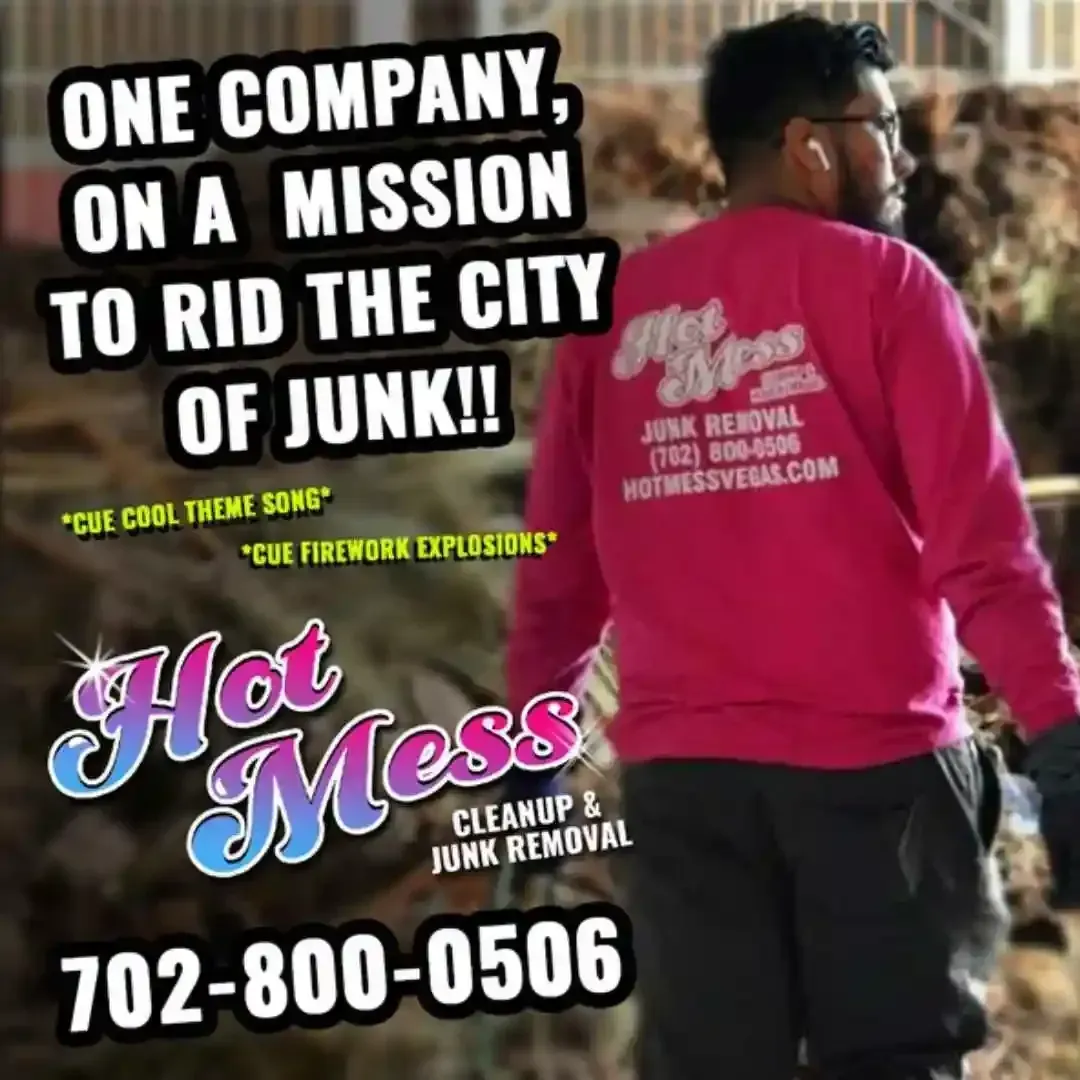Best Practices for Recycling During Junk Removal
Recycling is one of the cornerstones of environmentally responsible junk removal, and its importance cannot be overstated. As the global waste crisis continues to grow, finding effective ways to reduce, reuse, and recycle the materials we no longer need is more crucial than ever. Junk removal, which typically involves large amounts of unwanted items, is a prime opportunity to make a significant impact. By integrating recycling into these processes, we can help to significantly reduce the volume of waste sent to landfills, where it can take years or even centuries to break down. Recycling also helps to conserve valuable natural resources, as many items can be repurposed to create new products instead of extracting raw materials. Furthermore, it plays a critical role in reducing pollution and conserving energy. Whether you're cleaning out a home, decluttering an office, or clearing post-construction debris, responsible recycling practices contribute to a cleaner, healthier environment for future generations.
Why Recycling Matters in Junk Removal
Before diving into specific recycling best practices, let’s take a moment to understand why this matters. The simple truth is that junk removal and disposal significantly contribute to waste production. In many cases, waste ends up in landfills, where it can take centuries to break down. By adopting responsible recycling practices, you reduce this burden on our planet and help create a more sustainable future.
Recycling during junk removal not only benefits the environment, but it can also provide economic benefits. By reclaiming valuable materials from what would otherwise be thrown away, we can repurpose or resell them, reducing the need for new production. It’s a win-win situation, both for the environment and for your wallet.
Understanding the Types of Materials That Can Be Recycled
The first step in recycling during junk removal is understanding what can be recycled. While some materials are obvious—like paper, glass, and plastic—others might require more attention. Here’s a breakdown of some common materials that can be recycled during junk removal:
- Paper and Cardboard: These materials are highly recyclable and often make up a significant portion of what people throw away. Whether it’s cardboard boxes, newspapers, or office paper, these can all be recycled into new products like paper towels, cardboard packaging, or new paper products.
- Plastics: Plastic materials are another common item found during junk removal, but not all plastics are recyclable. While bottles, containers, and certain plastic packaging can be recycled, many other plastic items may end up in the trash. It's essential to separate plastics by type to ensure proper recycling.
- Glass: Glass is one of the easiest materials to recycle. It can be reused indefinitely without losing quality. Bottles, jars, and containers are common glass items found during junk removal that can be recycled into new glass products.
- Metals: Metals, like aluminum and steel, are among the most valuable recyclable materials. Aluminum cans, old appliances, and scrap metal can be sold to recycling facilities for reuse in manufacturing. Metals do not lose quality through recycling, making them a valuable resource.
- Electronics: E-waste, such as old phones, computers, and televisions, is a growing problem. Fortunately, many electronic items contain valuable metals and materials that can be recycled. E-waste recycling centers specialize in safely disposing of old electronics while extracting these materials for reuse.
- Wood: Wood can be recycled into new furniture, paper products, or used as biomass for energy production. Old furniture, pallets, and wooden construction debris are often recyclable.
- Textiles: Clothing, fabrics, and textiles may seem like trash, but they can be recycled or repurposed. Old clothes can be donated, while fabric scraps can be reused for various creative projects. Some textiles are also processed into insulation or other products.
- Appliances and Furniture: Larger household items, such as refrigerators, washing machines, and couches, may seem like non-recyclable junk. However, many appliances can be stripped for recyclable metals, glass, and plastics. Similarly, furniture can often be donated or broken down for reuse.
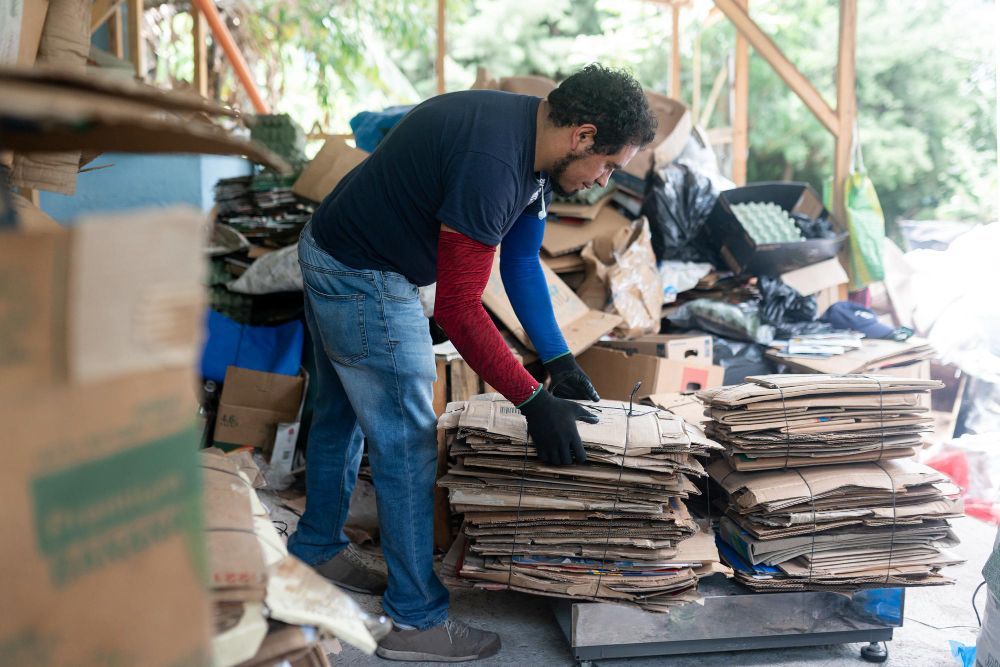
Step-by-Step Guide to Recycling During Junk Removal
Now that we know the types of materials that can be recycled, let’s dive into the best practices for ensuring responsible recycling during the junk removal process.
Assess the Junk Before Removal
Take some time to assess the items that need to be disposed of. Separate materials based on their recyclability. Look for paper, plastics, glass, metals, and electronics that can be recycled. It’s important to sort these materials before starting the removal process to make sure you’re not inadvertently sending recyclable materials to a landfill.
Know Your Local Recycling Facilities
Not all junk removal services handle recycling. Before starting the process, research the local recycling centers in your area. Knowing which facilities accept what types of materials will help ensure that you’re disposing of items properly. Some facilities may specialize in electronics recycling, while others focus on cardboard, plastic, or metal.
Additionally, many cities and municipalities offer curbside recycling programs or collection events for certain materials. Take advantage of these services to reduce the amount of waste you’re sending to the landfill.
Donate Usable Items
If there are items in your junk pile that are still usable, consider donating them rather than recycling them. Furniture, clothing, appliances, and even electronics may still have life left in them and could be put to good use by someone else. Charities, secondhand stores, or online platforms for local giving are great options for donating items.
Disassemble Larger Items
Larger items, such as appliances and furniture, can often be broken down into smaller parts, each of which may be recyclable. For example, old refrigerators can be stripped of metal parts and glass components, and wooden furniture can be disassembled for recycling or repurposing.
Handle Hazardous Materials Properly
Certain materials, such as paint, batteries, or chemicals, are considered hazardous waste and require special handling. Make sure to properly dispose of hazardous materials through local waste management programs designed to safely handle and recycle these substances. If you’re unsure how to dispose of hazardous materials, check with your local recycling center for guidance.
Use Junk Removal Services That Focus on Recycling
Many professional junk removal companies specialize in eco-friendly disposal practices, including recycling. If you're not able or don’t want to manage the recycling process yourself, hiring a junk removal service that prioritizes recycling can help ensure that your unwanted items are disposed of responsibly.
Be Mindful of Non-Recyclable Items
While it’s essential to recycle as much as possible, there are some materials that simply can’t be recycled. Non-recyclable items include certain types of plastic, contaminated paper, and some types of textiles. These items should be sorted out and disposed of through appropriate waste management channels.
Encourage a Sustainable Future
As you work through the junk removal and recycling process, keep in mind the importance of sustainability. By encouraging responsible waste management, you not only help the environment but also encourage others to be more mindful of their own waste habits.
How Recycling Can Transform Your Junk Removal Efforts
Recycling can truly transform the way you approach junk removal, especially when you realize the variety of materials that can be reused or repurposed. What might seem like unwanted clutter could be a resource for someone else or a valuable material for recycling centers. Metal, paper, glass, and certain plastics are prime candidates for recycling, and incorporating them into your junk removal routine makes your efforts more sustainable. Instead of throwing everything away, you can separate these items for recycling, which helps reduce your overall waste footprint.
This transformation extends beyond just the immediate cleanup effort; it contributes to broader environmental goals. Every small action you take to recycle adds up over time, helping to conserve natural resources and reduce pollution. When done effectively, recycling during junk removal can provide long-term positive impacts on the environment, turning a simple cleaning task into an act of environmental responsibility.
The Environmental Benefits of Recycling During Junk Cleanouts
The environmental benefits of recycling during junk cleanouts are numerous and far-reaching. When you separate recyclable items from your junk, you’re actively helping to reduce the amount of waste sent to landfills. Items such as paper, glass, and plastic can be broken down and reused, which minimizes the need for new materials and reduces the overall environmental impact of manufacturing. By taking the time to recycle during junk removal, you're reducing energy consumption, conserving raw materials, and decreasing the overall carbon footprint of the disposal process.
Additionally, recycling helps mitigate the harmful effects of pollution, especially when it comes to the improper disposal of toxic substances found in some materials. Electronics, for example, can contain hazardous chemicals that leach into the soil if not disposed of properly. By recycling these items, you’re helping to prevent harmful toxins from contaminating local ecosystems and groundwater, making recycling a crucial component of responsible junk removal.
Conclusion
Recycling during junk removal is a vital step toward building a more sustainable future. By understanding what can be recycled, sorting materials properly, and utilizing the right recycling services, you can minimize waste and contribute to the health of the planet. Whether you're decluttering your home or tackling a large-scale removal project, always keep recycling practices in mind. With a little effort and planning, we can all do our part to reduce our environmental footprint.
For those in Las Vegas, Nevada, Hot Mess Cleanup & Junk Removal offers professional services that prioritize eco-friendly disposal and recycling. With a commitment to sustainability, they ensure that your junk removal needs are met responsibly. For more information or to schedule a pickup, feel free to reach out to Hot Mess Cleanup & Junk Removal at 702-800-0506 or email info@hotmessvegas.com.
